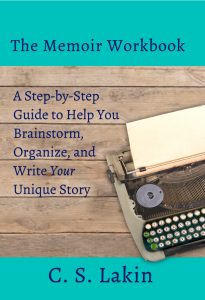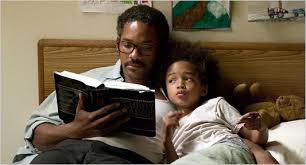Important Considerations When Writing Your Memoir
Here are some excerpts from my new book, The Memoir Workbook. If you’ve thought about writing a memoir (which is hugely popular these days), consider these things before you get started.
When we tell our stories, we want to tell the truth. This can be challenging in two ways.
First, it can be painful to dig into our memories and hearts and face our fears and failures, yet being brutally honest is what will cause readers to not only empathize but draw inspiration and courage for their own situation.
Second, we don’t want to hurt others who may be the culprits of pain in our stories.
Third, we don’t want to open ourselves up to a lawsuit.
So how do you tell the truth yet protect your own heart and not end up with a libel suit for defaming someone? Or turning friends into enemies? These are all important considerations (and some I’ll get into in upcoming posts).
You may feel as if your story isn’t anything special. You aren’t famous or influential. Your story, to you, sounds like a thousand other stories.
But here’s the thing: no one has had your exact life or experienced exactly what you experienced.
But many, many people have gone through or are going through something similar to what you have. As humans, we share, universally, the human experience.
Think What You Have in Common with Others
Everyone—whether old or young, black or white, rich or poor, or living in the US or Antarctica—needs shelter, food, love, understanding, employment, security, and good health. When you focus your theme on a basic need, readers will relate. These are universal issues, universal themes.
Readers are drawn in to truthful stories from the heart, and if you share your story honestly, humbly, with passion, conviction, and a desire to inspire, your story will be just as valid, meaningful, even important as anyone else’s.
So keep in mind: your story isn’t about you. It’s about something bigger. Think long and hard about what that “bigger thing” is.
For example, if your theme underlying your memoir is telling readers: “You aren’t alone. I’ve gone through this very thing, and I’ve come out victorious. If I can do it, you can too,” then you will have a powerful story.
Understanding Your Motivation
Your motivation for telling your story is crucial to understand. Why? Because if you are writing for the wrong reasons, you will only sabotage your story.
What are some wrong reasons?
- Payback or vengeance. When we’ve been hurt or abused or treated unfairly, it’s only natural to feel a desire to vent and even retaliate through exposure.
- To wallow in the pain. Wallowing is akin to whining. And neither of those leads to healing ourselves or building up others.
The place to vent, rage, whine, or wallow is in private. Maybe to God, or to a trusted friend who won’t take offense or judge you. Journaling is another way to privately express these tumultuous feelings without bringing them into existence in the world of other humans.
There is a difference between wallowing and bearing witness. Think of yourself in the role of storyteller as the mature self that bears witness to the events of your life instead of as the victim who has been wronged and deserves retribution or pity (we’ll look more into that in a later chapter).
In other words, prepare your mind and heart to tell your story from a sacred and safe place. In that way you will best reach the hearts of your readers.
Presenting Yourself Honestly
Avoid making yourself the superhero of your story. As with fiction, readers relate to real people. If you portray yourself as the hero in every situation—or the pathetic victim—you will turn off your readers.
You should come across human: with strengths and weaknesses, moments of vulnerability and courage. You should appear neither totally innocent nor totally guilty for the events that transpired. You aren’t trying to appeal to everyone.
No one can be expected to remember the past perfectly. As you delve into your memory, you want to reconstruct as accurately as you can the events you want to share. Readers will recognize your honest attempt to be accurate. But they can also sense when a writer is lying or stretching the truth.
You may find that you are often speculating about things and drawing conclusions about motives, and when doing so, say so. Don’t present those things as fact or blanket truth.
 Memory is such a strange thing. It’s not only personal, it’s changeable. You may remember events quite differently at different times in your life. You may not recall what things happened at what dates. Don’t stress about getting every little fact straight. Just do your best, without judgment.
Memory is such a strange thing. It’s not only personal, it’s changeable. You may remember events quite differently at different times in your life. You may not recall what things happened at what dates. Don’t stress about getting every little fact straight. Just do your best, without judgment.
For the sake of your story, you may move events around. You might embellish with details or dialogue that isn’t exactly right but provides the gist of what was said. The point is to tell your story with integrity, capturing the essence as best as you are able.
The age-old question “What is truth” is pertinent here. Truth can be a matter of perspective. And, in the case of memoir, a matter of spotty memory.
The Memoir Workbook provides both thought-provoking questions and samples from memoirs to help aspiring memoirists to brainstorm, organize, and write their story. It includes many writing prompts and writing-craft tips designed to provide the basics for writing memoir in a cinematic style. Rather than tell the story of a time in your life, consider bringing those moments to life using fiction techniques (some call this creative nonfiction).
While The Memoir Workbook can only go so far with teaching writing craft, it touches on some of the important elements of fiction story structure, dialogue, and “character” presentation.
If you’ve been puzzled about how and where to start your story, this workbook will lead the way! You can buy your copy (paperback only, because you need to write in it!), HERE on Amazon!












Loved to read and learn something in your article. Every one of us is a book holding on to be composed, and that book, whenever composed, brings about an individual clarified.
Thanks
Byron